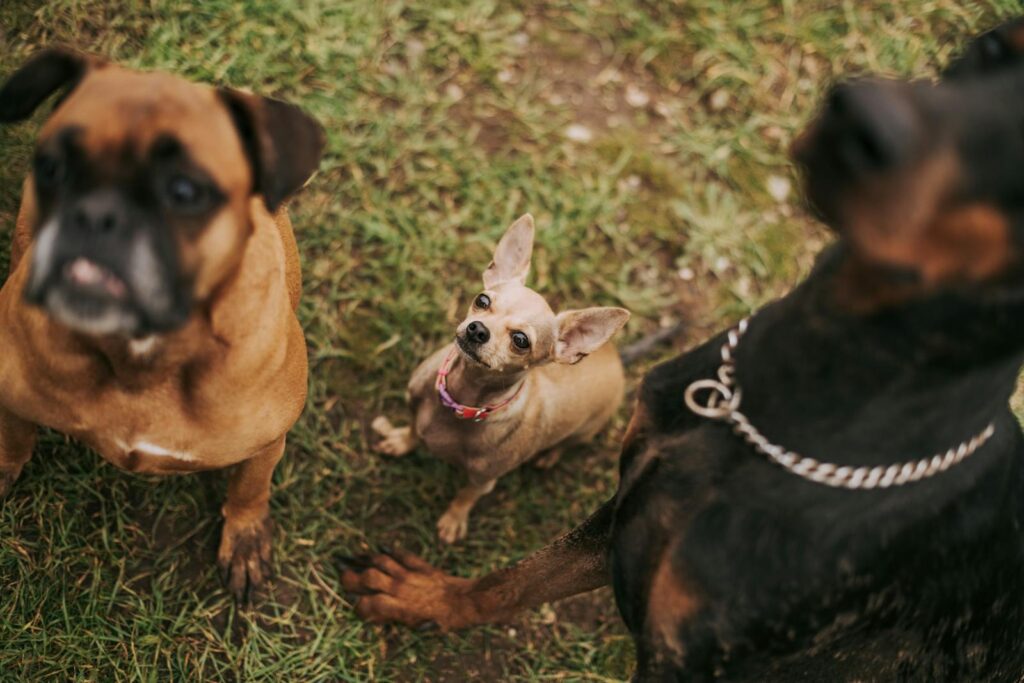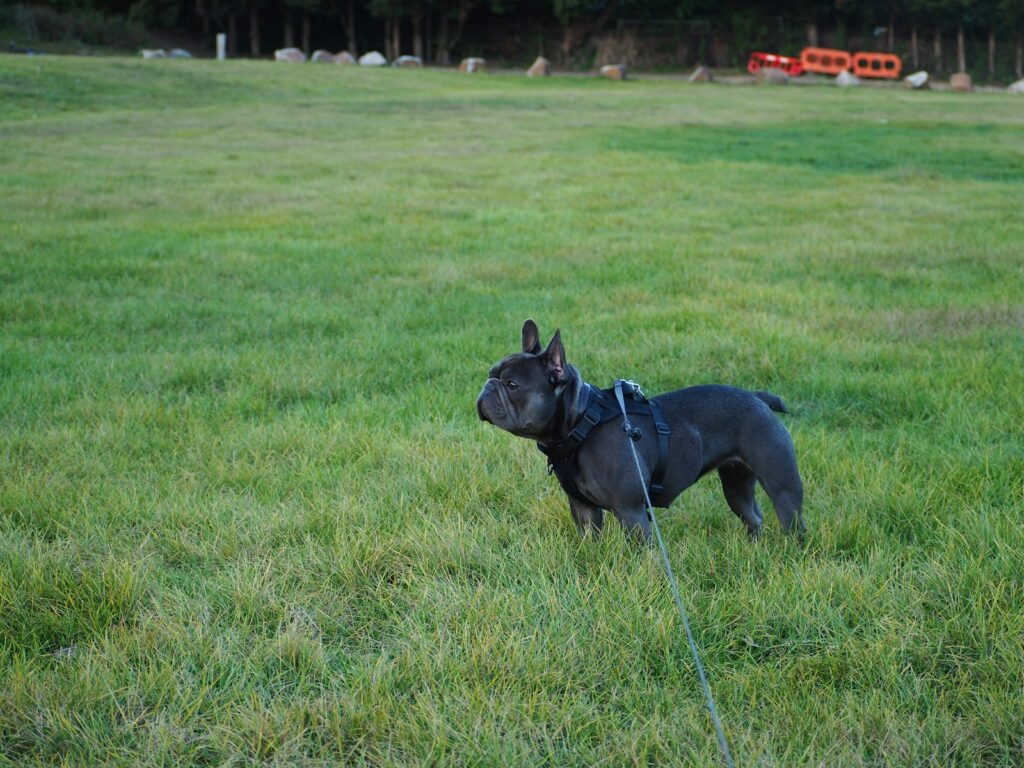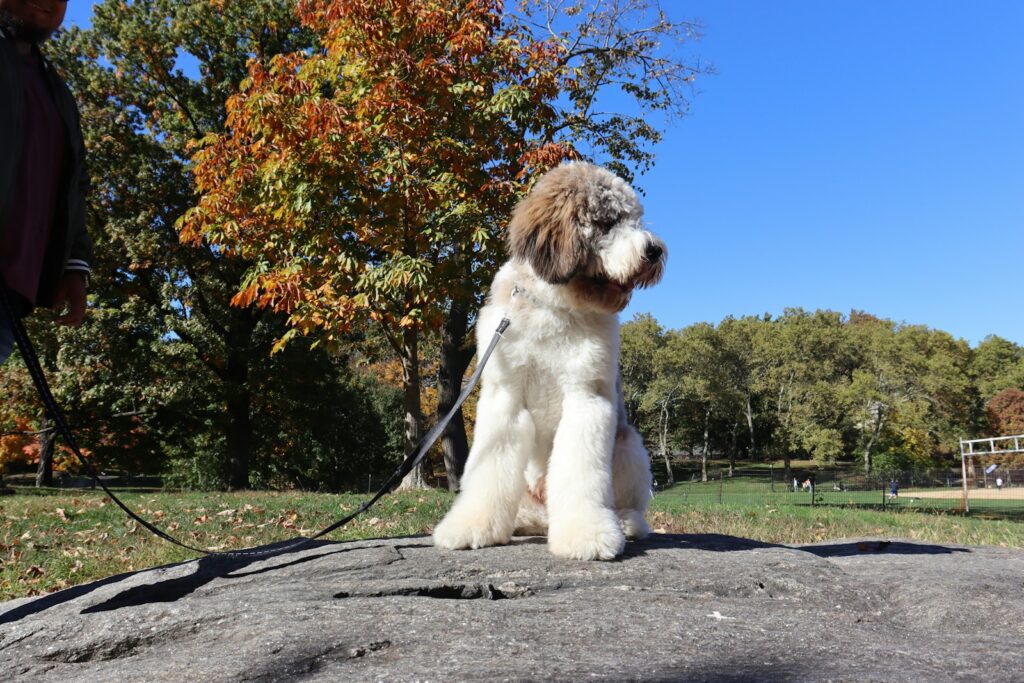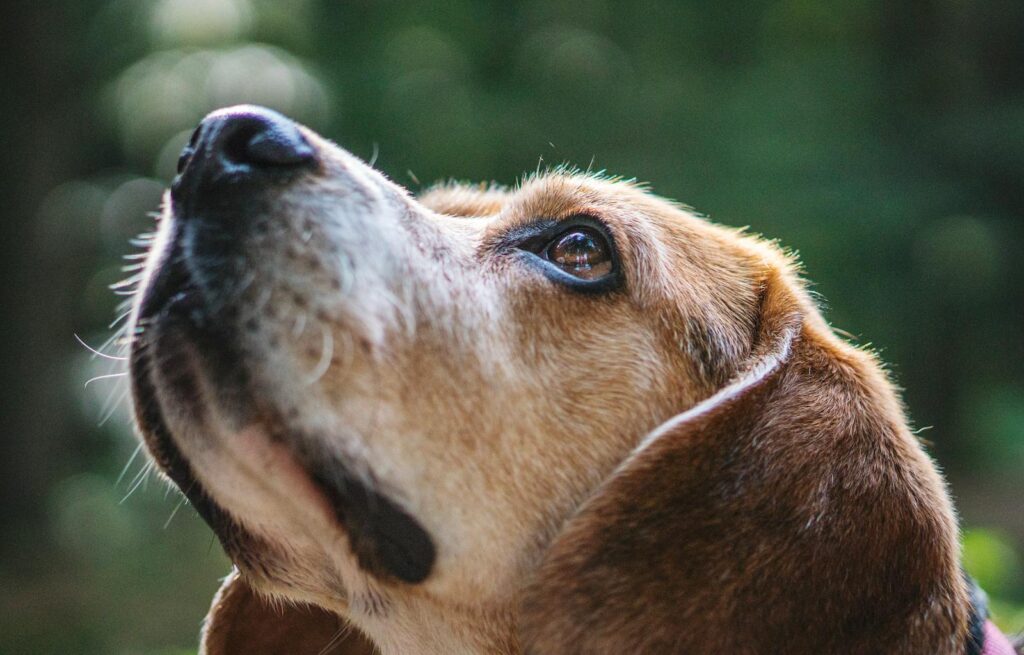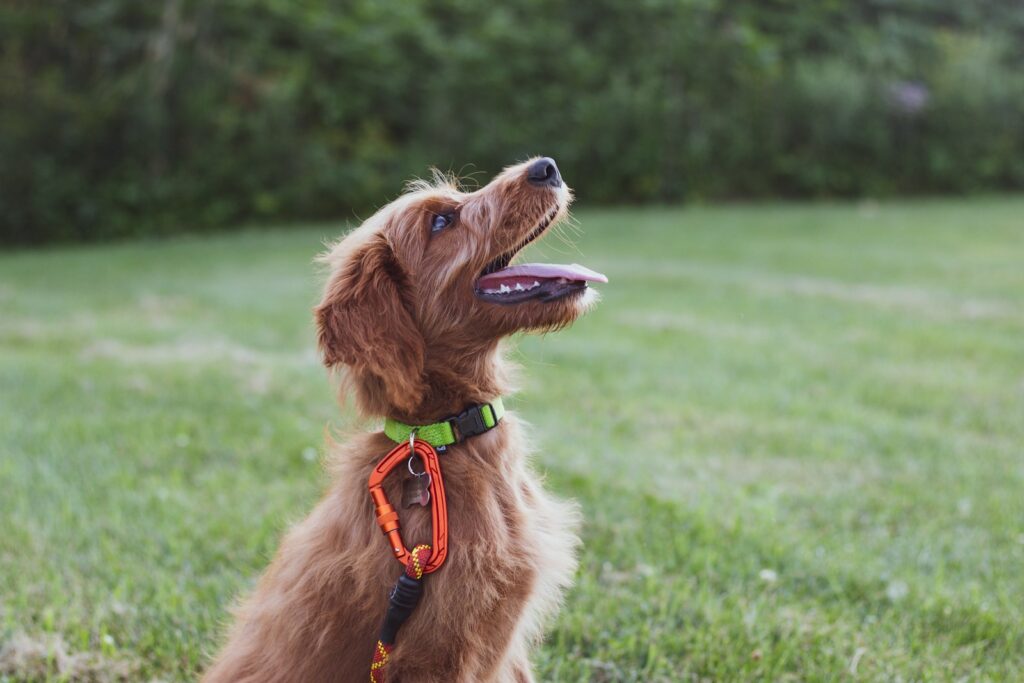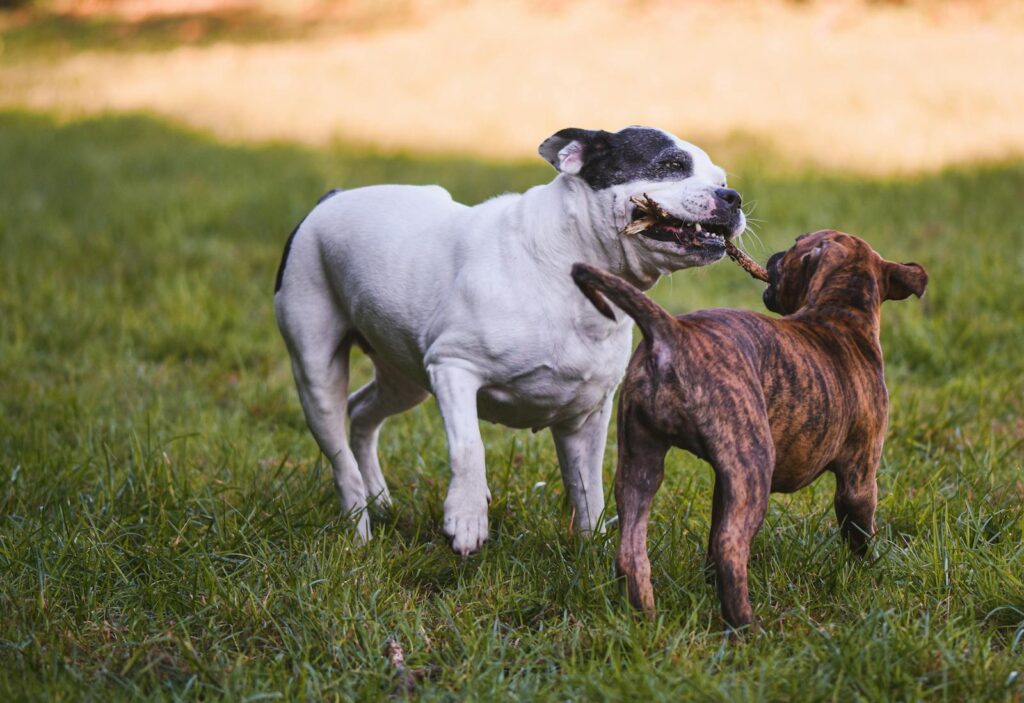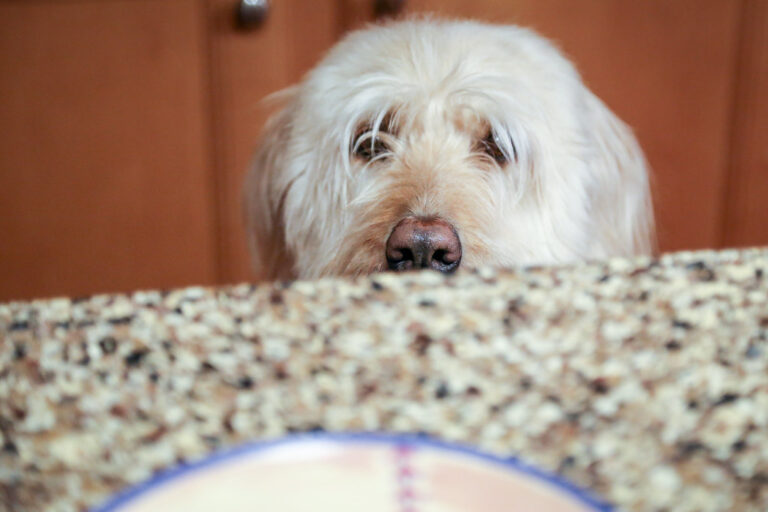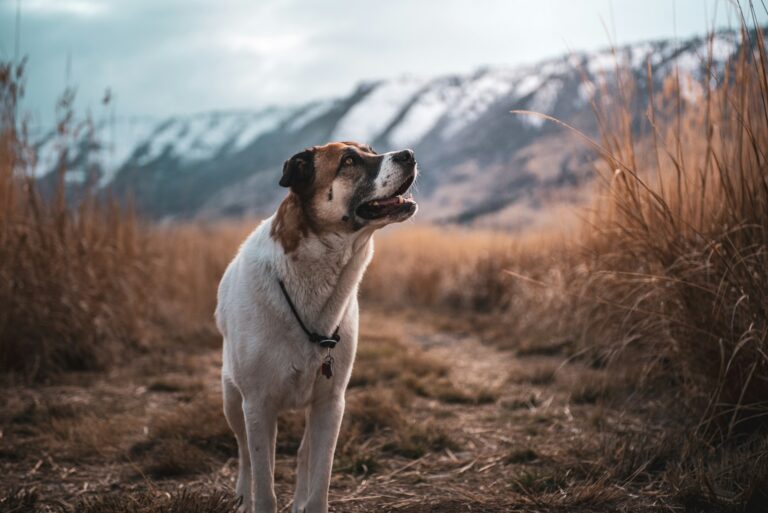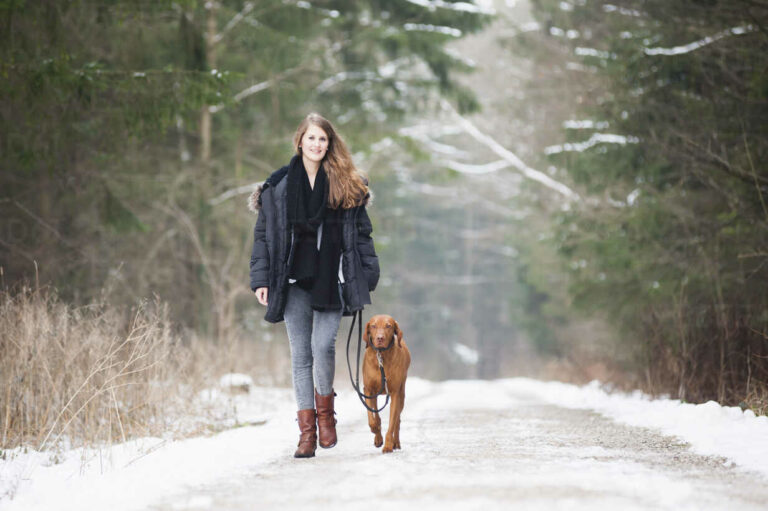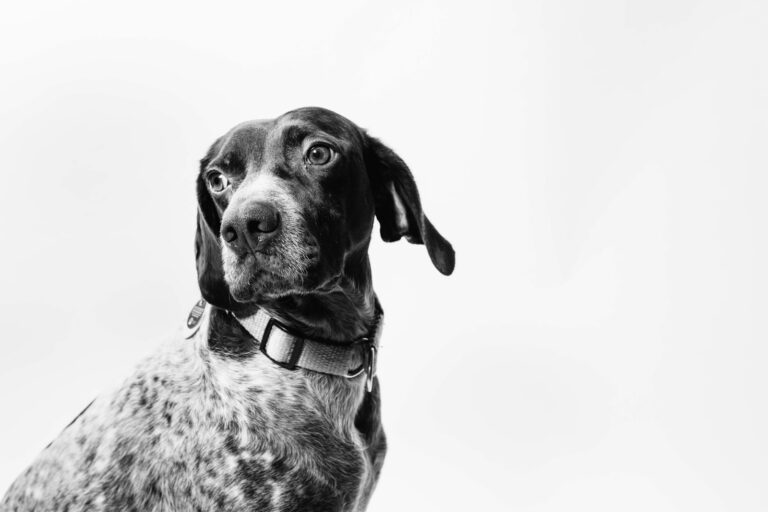How to Safely Socialize Your Dog with Other Dogs
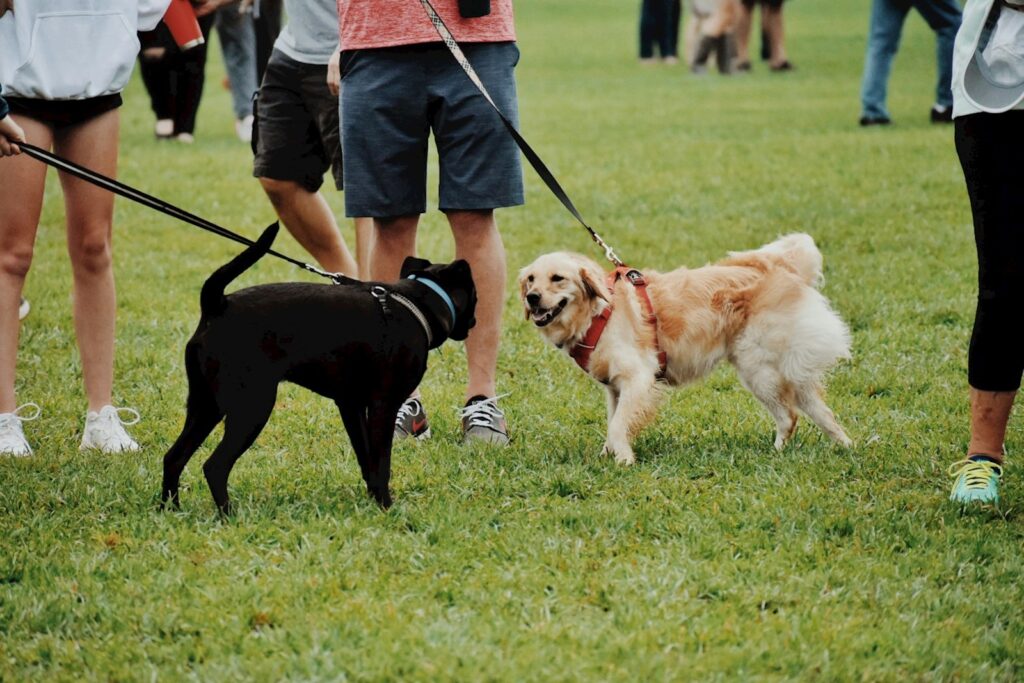
Socialization is a key part of raising a well-behaved, confident dog. Whether you have a young puppy or an adult dog, introducing them to other dogs properly is essential for reducing fear, aggression, and anxiety. In Missoula, where dogs are part of everyday life—on trails, at dog-friendly businesses, and in local parks—having a well-socialized pup makes outings more enjoyable.
In this guide, we’ll cover why socialization is important, how to introduce dogs properly, common mistakes to avoid, and when professional help may be needed.
Why Socialization is Crucial for a Well-Behaved Dog
A well-socialized dog is:
✔ More confident and less fearful in new situations.
✔ Less likely to develop aggressive tendencies due to fear or insecurity.
✔ Better behaved in public spaces and around other animals.
✔ Easier to train, as they are more adaptable to new experiences.
Proper socialization isn’t just about letting dogs play together—it’s about helping them learn appropriate behavior in different settings, so they respond well to other dogs on and off-leash.
The Right Way to Introduce Dogs to Each Other
Introducing dogs properly is key to creating a positive first impression and preventing negative reactions. Here’s how to do it right:
1. Start with Neutral Territory
Avoid bringing a new dog directly into another dog’s home or yard, as territorial behavior can trigger aggression. Instead, introduce them in a neutral setting, such as a quiet park or open space.
2. Use Leashes, But Keep Them Loose
Keep both dogs on leashes, but allow some slack so they don’t feel trapped or tense. A tight leash can create tension, leading to defensive behaviors.
3. Let Them Observe from a Distance
Begin introductions at a distance and allow the dogs to see each other without immediately forcing interaction. Walk them parallel to each other to help them adjust before allowing closer contact.
4. Look for Positive Body Language
Signs of a good introduction include:
✔ Loose, wagging tails (not stiff or high).
✔ Relaxed ears and body posture.
✔ Play bows (front legs lowered, rear end up).
If you notice signs of stress or aggression—such as stiff bodies, raised hackles, prolonged staring, or growling—increase distance and give them more time to adjust.
5. Allow Short, Supervised Sniffing
Once both dogs appear calm, allow them to briefly sniff each other. Keep the session short and positive—if things go well, reward both dogs with praise and treats.
6. Monitor Play and Set Boundaries
If they engage in play, ensure it stays balanced and friendly. Watch for signs that one dog is feeling overwhelmed, such as:
🚩 Pinned ears, tucked tail, or trying to retreat.
🚩 One dog constantly chasing without role reversal.
🚩 Snapping or excessive growling.
If play gets too rough, calmly separate them and give them a break before allowing further interaction.
Common Mistakes That Lead to Bad Interactions
❌ Rushing the Introduction – Allowing dogs to meet too quickly or in a confined space can increase anxiety and tension.
❌ Forcing Interaction – Not all dogs want to be social with every dog. Respect their comfort level and don’t force interactions.
❌ Ignoring Warning Signs – If a dog is showing clear stress signals (whale eyes, stiff posture, growling), they need space. Ignoring these signs can lead to a fight.
❌ Choosing the Wrong Environment – Busy dog parks can be overwhelming and unpredictable for first-time introductions. Start with controlled, one-on-one meetings before advancing to group settings.
How Professional Guidance Can Help with Socialization
If your dog struggles with meeting other dogs due to fear, reactivity, or overexcitement, a professional trainer can provide:
✔ Controlled socialization sessions in a safe setting.
✔ Guidance on reading body language and responding appropriately.
✔ Desensitization training for reactive or anxious dogs.
✔ Techniques to improve leash manners and public behavior.
At Off Leash K9 Training Missoula, we help dogs build confidence and social skills, ensuring safe and positive interactions with other dogs.
Need Help with Dog Socialization? Our Trainers Can Guide You!
Whether your dog needs help meeting new friends or overcoming social anxiety, our expert trainers can create a customized training plan!
📞 Call (406) 946-3037 or fill out the form below to book a FREE consultation today!

